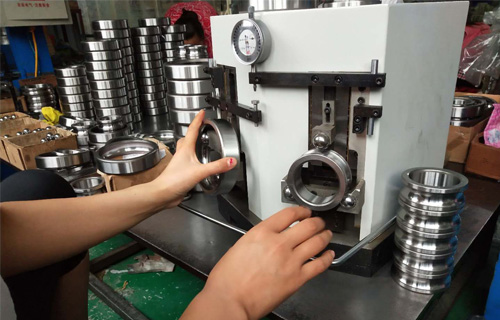
Oct . 11, 2024 07:11 Back to list
farm equipment bearings
The Importance of Bearings in Farm Equipment
In the world of agriculture, efficiency and reliability are crucial for maximizing productivity and minimizing downtime. At the heart of modern farming machinery lies an essential component that often goes unnoticed bearings. These small but mighty mechanical devices play a vital role in the operation of various farm equipment, making them indispensable for farmers and agricultural engineers alike.
Understanding Bearings
Bearings are mechanical components designed to reduce friction between moving parts in machinery, allowing for smooth and efficient operation. They support rotating shafts, helping to manage the loads and stresses encountered during operation. In the context of farm equipment, bearings are found in various implements, from tractors and combine harvesters to irrigation systems and seed drills.
Types of Bearings in Farm Equipment
There are several types of bearings used in farm machinery, each serving a specific purpose depending on the application
1. Ball Bearings These are the most common type, consisting of spherical balls that provide a low-friction surface for rotation. They are often used in applications where high speeds and moderate loads are present, such as in tractor wheels or spindles.
2. Roller Bearings Using cylindrical rollers instead of balls, roller bearings are designed to support heavier loads. They are typically found in equipment like plows and harrows, where robust performance is essential.
3. Thrust Bearings These bearings are designed to handle axial loads and are commonly used in applications where there is a need to manage forces aligned along the axis of the shaft. Thrust bearings are critical in steering mechanisms and gearbox assemblies.
4. Sleeve Bearings Also known as plain bearings, sleeve bearings support radial loads and are often used in applications where simplicity and low maintenance are necessary. They can be found in augers and conveyor systems used for transporting grain.
The Role of Bearings in Farm Equipment Performance
Bearings play a significant role in enhancing the overall performance of farm machinery. Here are some key contributions they make
farm equipment bearings

1. Smooth Operation By reducing friction between moving parts, bearings facilitate smooth operation of machinery. This is particularly important during high-speed tasks, such as planting seeds or harvesting crops, where any delay can lead to significant losses.
2. Longevity High-quality bearings can significantly extend the lifespan of farm equipment. By minimizing wear and tear on other components, they help maintain the integrity of machines, reducing the frequency of repairs and replacements.
3. Increased Load Capacity Bearings allow farm equipment to handle heavy loads, an essential requirement in agriculture. Whether it's a tractor plowing through compacted soil or a combine harvester collecting grain, bearings enhance load distribution, ensuring machines function efficiently even under stress.
4. Fuel Efficiency Efficient bearings contribute to lower energy consumption in farm equipment. Reduced friction means that engines don't have to work as hard, leading to improved fuel efficiency—a critical factor for farmers looking to cut costs.
Maintenance of Bearings
While bearings are designed for durability, regular maintenance is essential to ensure their optimal performance. Farmers should consider the following maintenance tips
1. Regular Inspections Periodically check bearings for signs of wear, misalignment, or damage. Early detection of issues can prevent catastrophic failures.
2. Proper Lubrication Bearings require adequate lubrication to function smoothly. Depending on the type of bearing, farmers should use the appropriate lubricant and ensure it is replenished as needed.
3. Cleanliness Keep the areas around bearings clean to prevent contaminants like dirt and debris from entering and causing damage.
4. Replacement Eventually, all bearings will need replacing. Timely replacement can prevent downtime and more extensive repairs on affected machinery.
Conclusion
In the ever-evolving field of agriculture, the importance of bearings in farm equipment cannot be overstated. They are integral to the efficient and reliable operation of machinery, contributing to increased productivity, reduced costs, and improved safety on the farm. By understanding the different types of bearings, their functions, and the best maintenance practices, farmers can ensure their equipment remains in peak condition, thereby paving the way for a successful harvest season. As technology advances, the role of bearings will continue to be crucial in supporting the needs of modern agriculture, making them a true cornerstone of farming machinery.
Latest news
-
Durable Greenhouse Pillow Block Bearings for Reliable Ventilation
NewsAug.31,2025
-
Spherical Roller Bearings Applications: Heavy Duty, Self-Aligning
NewsAug.30,2025
-
Premium Deep Groove Ball Bearings | High Speed & Reliability
NewsAug.29,2025
-
Durable Scaffolding Clamps - Secure & Reliable Tube Connectors
NewsAug.28,2025
-
Common Failures in Thrust Ball Bearings and Solutions
NewsAug.22,2025
-
How Tapered Roller Bearings Can Take Shock Loads
NewsAug.22,2025
